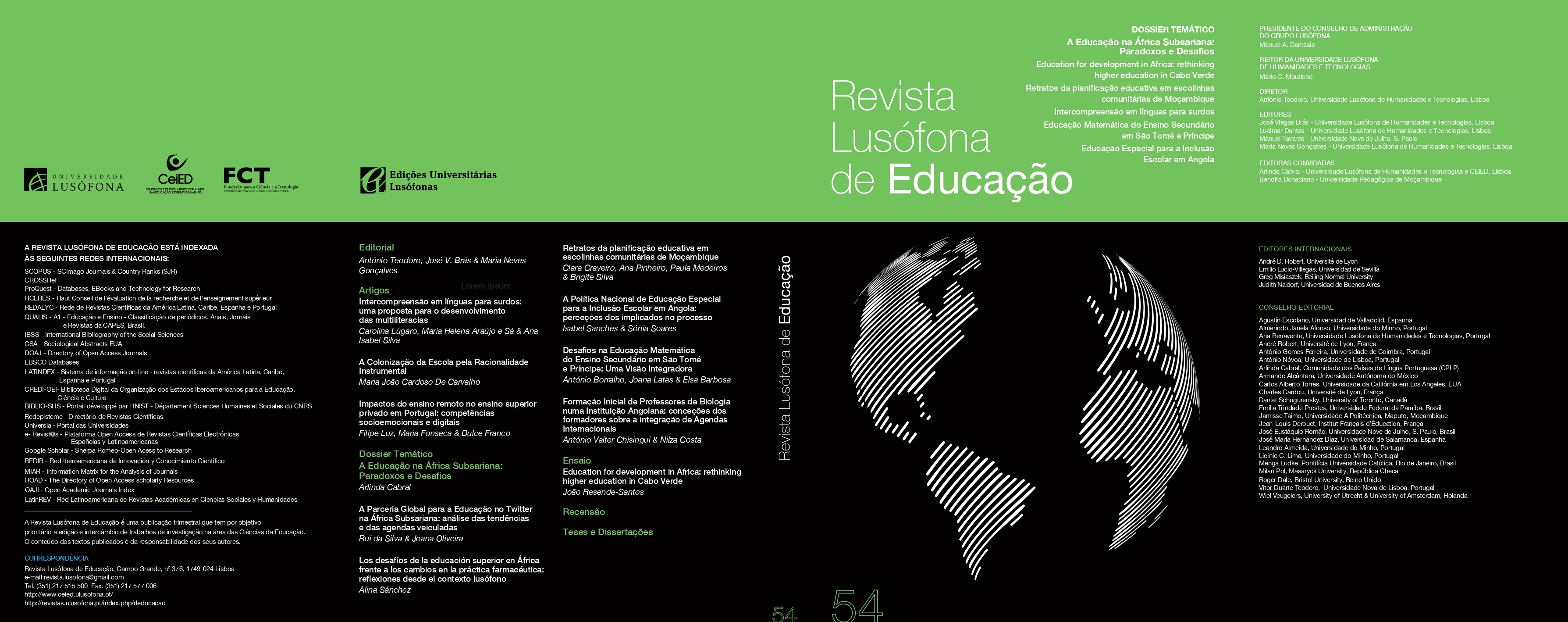A Parceria Global para a Educação no Twitter: análise das tendências e das agendas veiculadas
Abstract
O presente artigo analisa a utilização da rede social Twitter, enquanto plataforma, por organismos internacionais na mediação das políticas educativas. Para tal selecionou-se a Parceria Global pela Educação pelo papel preponderante que este fundo tem no apoio ao setor da educação aos países do Sul Global, em particular nos países da África Subsariana. Desta forma, investigou-se a conta oficial do Twitter da Parceria Global para a Educação (@GPforEducation), procurando analisar as tendências das publicações, mas também os utilizadores (indivíduos e instituições) mencionados e as agendas veiculadas, recorrendo à análise de conteúdo e à análise automática de frequência de palavras dos tweets utilizando o software NodeXL. O artigo argumenta que os temas dos tweets são diversos e tentam acomodar várias agendas, como o direito à educação e a educação como um investimento. Conclui que os utilizadores mencionados nos tweets que apresentam maior frequência são as instituições esperadas, não acontecendo o mesmo com os utilizadores institucionais com menor frequência, onde surgem também atores privados. É ainda possível concluir que os países da África Subsariana têm preponderância nos tweets, bem como as questões inerentes ao género e à educação das meninas.
Palavras-chave: política educativa; parceria global para a educação; twitter; governação global
Downloads
-
Authors retain copyright of their work, without any payment, and grant the journal the right of first publication. The work is simultaneously licensed under a Creative Commons Attribution 4.0 International License (CC BY 4.0), which allows others to share (copy and redistribute the material in any medium or format) and adapt (remix, transform, and build upon the material for any purpose, even commercially), provided that proper credit is given to the author(s) and the initial publication in RLE is acknowledged.
-
Authors are permitted to enter into separate, additional contractual arrangements for the non-exclusive distribution of the version of the work published in this journal (e.g., depositing it in an institutional repository or publishing it as a book chapter), provided that authorship and initial publication in RLE are acknowledged.
-
Authors are allowed and encouraged to post and disseminate their work online (e.g., in institutional repositories or on their personal websites), as this can increase the visibility and citation of the published work (see The Open Access Effect).








